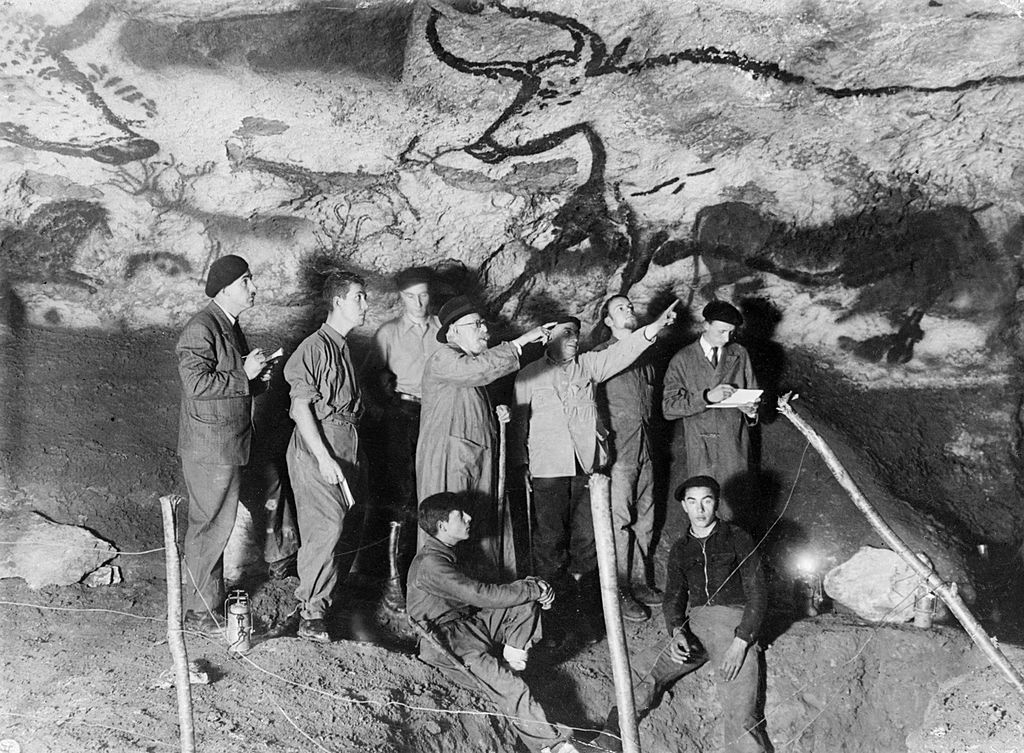Scientists are recreating extinct mega-cows


For thousands of years, a species of elephant-sized cows, called "aurochs," roamed throughout the wilds of Europe. The last of the aurochs died in Poland in 1627 after humans drove the mega-bovines to extinction. Today, the effects of an auroch-less ecosystem are felt throughout Europe, CNN writes: "Conservationists now believe the loss of the keystone herbivore was tragic for biodiversity in Europe, arguing that the aurochs' huge appetite for grazing provided a natural 'gardening service' that maintained landscapes and created the conditions for other species to thrive."
So why not ... bring the aurochs back? It's not science-fiction — in fact, the plan is in the works right now. But instead of trying to use DNA to recreate the aurochs, à la Jurassic Park, scientists are "backbreeding" the aurochs' modern-day relative: the cow.
A photo posted by Aurélie Bouuh (@aureliebouuh) on Dec 17, 2016 at 9:25am PST
Of course, cows can't exactly become aurochs again, much less transform overnight. Ecologist Ronald Goderie is instead working to create the next best thing, the "Tauros," which is a "near 100 percent substitute" of the auroch. To do so, Goderie and his team are strategically breeding modern cows that have remnants of the aurochs' genes in order to work toward the purest possible final product. That will take about seven generations, by ecologists' estimates, which means the "completed" Tauros will be born sometime around 2025. Today, the Tauros are in their fourth generation.
The Week
Escape your echo chamber. Get the facts behind the news, plus analysis from multiple perspectives.

Sign up for The Week's Free Newsletters
From our morning news briefing to a weekly Good News Newsletter, get the best of The Week delivered directly to your inbox.
From our morning news briefing to a weekly Good News Newsletter, get the best of The Week delivered directly to your inbox.
"Bovines can shape habitats and facilitate other species because of their behavior," explained Frans Schepers, the managing director of Rewilding Europe, which has partnered with Goderie, "and the more primitive and close to the wild the better, because it means that eventually they can become part of the natural system."
A free daily email with the biggest news stories of the day – and the best features from TheWeek.com
Jeva Lange was the executive editor at TheWeek.com. She formerly served as The Week's deputy editor and culture critic. She is also a contributor to Screen Slate, and her writing has appeared in The New York Daily News, The Awl, Vice, and Gothamist, among other publications. Jeva lives in New York City. Follow her on Twitter.
-
 Courgette and leek ijeh (Arabic frittata) recipe
Courgette and leek ijeh (Arabic frittata) recipeThe Week Recommends Soft leeks, tender courgette, and fragrant spices make a crisp frittata
-
 Trump’s power grab: the start of a new world order?
Trump’s power grab: the start of a new world order?Talking Point Following the capture of Nicolás Maduro, the US president has shown that arguably power, not ‘international law’, is the ultimate guarantor of security
-
 Unrest in Iran: how the latest protests spread like wildfire
Unrest in Iran: how the latest protests spread like wildfireIn the Spotlight Deep-rooted discontent at the country’s ‘entire regime’ and economic concerns have sparked widespread protest far beyond Tehran
-
 Blue Origin launches Mars probes in NASA debut
Blue Origin launches Mars probes in NASA debutSpeed Read The New Glenn rocket is carrying small twin spacecraft toward Mars as part of NASA’s Escapade mission
-
 Dinosaurs were thriving before asteroid, study finds
Dinosaurs were thriving before asteroid, study findsSpeed Read The dinosaurs would not have gone extinct if not for the asteroid
-
 SpaceX breaks Starship losing streak in 10th test
SpaceX breaks Starship losing streak in 10th testspeed read The Starship rocket's test flight was largely successful, deploying eight dummy satellites during its hour in space
-
 Rabbits with 'horns' sighted across Colorado
Rabbits with 'horns' sighted across Coloradospeed read These creatures are infected with the 'mostly harmless' Shope papilloma virus
-
 Lithium shows promise in Alzheimer's study
Lithium shows promise in Alzheimer's studySpeed Read Potential new treatments could use small amounts of the common metal
-
 Scientists discover cause of massive sea star die-off
Scientists discover cause of massive sea star die-offSpeed Read A bacteria related to cholera has been found responsible for the deaths of more than 5 billion sea stars
-
 'Thriving' ecosystem found 30,000 feet undersea
'Thriving' ecosystem found 30,000 feet underseaSpeed Read Researchers discovered communities of creatures living in frigid, pitch-black waters under high pressure
-
 New York plans first nuclear plant in 36 years
New York plans first nuclear plant in 36 yearsSpeed Read The plant, to be constructed somewhere in upstate New York, will produce enough energy to power a million homes
